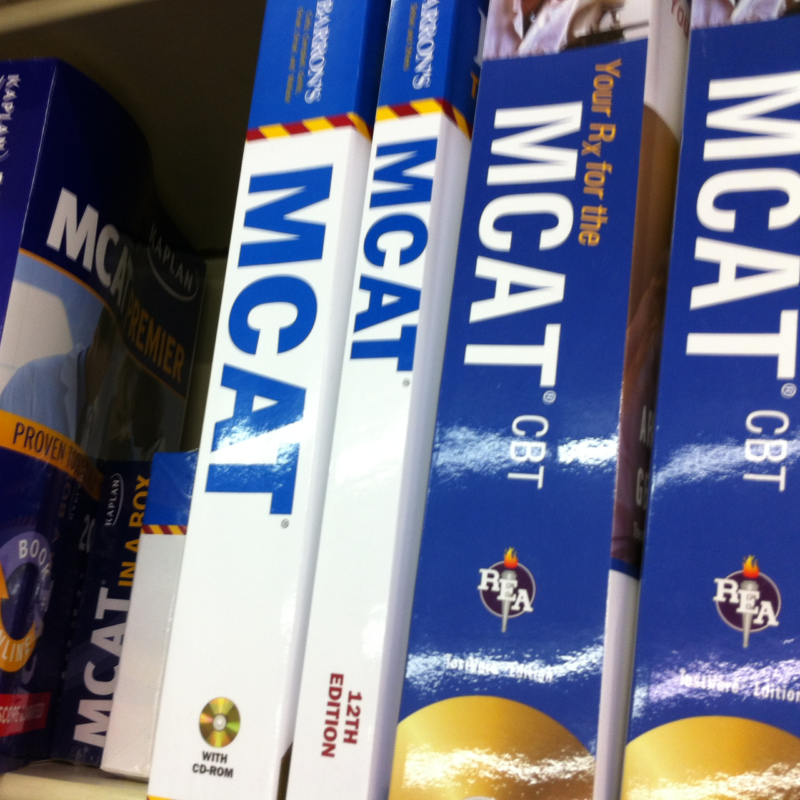As students begin to prepare for the next cycle of medical school application, I want to review some of the practical pieces of advice that every applicant should know. The actual process of applying to medical school is resource intensive: it costs thousands of dollars, hundreds of hours, and will strip you of many relaxing weekends that you would have otherwise enjoyed. Since you’ve made the decision to apply, here are some things that will help you make the best of it.
Remember that your MCAT score is a number. Your GPA is a number. These two things make up a major component of your application and you can’t change either of them now. You can’t change your letters of recommendation, either. The personal statement is a modifiable aspect of your application at this point, so you want to make sure to do a good job on it. But what else is there?
The answer to this lies in the details. This is what separates a good application from an excellent application. It is also what could separate a marginal application from one that gets an interview invitation. Every year, there are a few key mistakes that really put some students at a disadvantage. When schools are looking to offer acceptances, they are not only looking for good students. In addition to being smart, they are looking for people who will one day care for patients and be their colleagues. It is no surprise that those selected to become student doctors are usually meticulous, mature, intelligent, team players, and caring. Your application needs to reflect this.
Pre-Medical
The path to becoming a physician is long and challenging, and being a pre-medical student is hard. Learn about what you need to do to get into medical school successfully.
Letters of Recommendation for Medical School: Everything You Need to Know
Letters of recommendation can be one of the most important parts of an application. Here we answer some of the most commonly asked questions about LORs.
The Dual Path: What to consider when considering an MD-PhD
“When you come to a fork in the road, take it.” – Yogi Berra
I was sitting in the back of a filled auditorium listening to a presentation about the medical school application process when I heard the question that would forever change my life’s trajectory. “What about MD-PhD programs?” a woman sitting somewhere down in front asked. That was the first time I had heard of the dual degree program. Having struggled to decide on my career path, this seemed like the best of all worlds: I could get an MD and a PhD.
Getting Into Medical School and Residency: Wish I Knew It Before I Blew It
Drawing on the wisdom of those who have gone before you can help you avoid career-hindering mistakes.
9 Things to Do Before Applying to Medical School
Think about including these steps in your path to medical school:
1. Work or volunteer in the medical field. Working or volunteering in a health care-related environment or organization will not only enhance your medical school application, it will benefit you. It’s a chance to see if you enjoy working in the health or medical field, network with like-minded peers, take on increased responsibility and leadership roles, and build your resume.
Consider internships and research opportunities at health care facilities or research institutions in your local community. Shadowing a doctor or health professional is another good way to find out if a career in medicine is right for you. Research and leadership positions on campus are also a great way to build your application and test out this career path.
Get Medical Experience
How to Not Get Into Medical School
As an undergraduate student, I wanted to know how to get into medical school, and I wanted it straight from the source: the medical students. I figured that because they got in, they must have it figured out.
Then I got accepted into medical school and realized the truth. While there are some real lessons to learn to be more successful, medical school admissions can be a pretty arbitrary process. It’s actually more of a crap shoot than you would like to think. I gave myself less than a 1% chance of getting in to my current school, yet here I am. My state school, where I considered myself very competitive (higher than average stats, etc) didn’t even put me on their waitlist. Why? No clue.
Post Undergrad: Getting Ready for Medical School or a Gap Year
For many students interested in a career in medicine, the period after the final year of undergraduate education represents a time of transition to medical school or to furthering their experiences and their education in preparation for applying to medical school. This month’s article from the Association of American Medical Colleges (AAMC) focuses on those two pathways.
MCAT® Exam Registration: 10 Tips from the Experts
In just a few short weeks, registration for the June 2014 through January 2015 MCAT exam dates will open. We understand that registration can seem overwhelming! While we can’t promise that you won’t experience any wait time during registration, we do have some tips to help you BEFORE you even login to the registration system to make things a little easier and quicker.
5 Tips for Your Medical School Interview: Advice from a Recent Admit
Think of the medical school interview as a giant, modern dating ritual. Your AMCAS application and secondary essay were the first two online dates, and now you have agreed to meet each other in person. The admissions committee already has a rough skeleton of the greatest hits of your adult life, and they have decided that they really like you. However, before they will extend a proposal, they need to meet you in person, and they are willing to spend enormous amounts of their time and your money to arrange this meeting. What your interviewer writes about you for the admissions committee will either make your application come alive, remain flat on the paper, or tragically fail.
Medical School Interviews: 6 Common Mistakes That Admissions Officers Hate
Medical school interviews come in all different shapes and sizes. Some schools interview one-on-one, some have multiple interviewers, some have multiple-mini-interviews (MMI). Some schools use students, others use faculty, and some use alumni.
Story Selling and the MD Admissions Process
Each page of your application is precious. You have the opportunity to sell a compelling narrative…
Career-Changer Post-Bac Programs: The Ideal Applicant
The number of post-bac programs has grown recently – who are these programs for and what advantages do they offer?
Rethink How You Approach Medical School Interviews
How to think of interviews in a positive way.
Best Methods to Improve your MCAT Verbal Reasoning (VR) Score
By Karen van Hoek, PhD For many aspiring medical students, the Verbal Reasoning section of … Read more
Accelerated BS/MD Programs: What You Need to Know
The benefits and limitations of an accelerated BS/MD program are explored
Conquering the MCAT: 3 Students’ Perspectives
The MCAT is a major hurdle for many medical school applicants. The exam can be … Read more
Medical School Application Secondary Essays
You finally submitted your medical school primary application and think you can rest when, starting some time in late June, you start receiving secondary essay prompts—just about every day.
Overwhelmed, you start to wonder why you applied to so many medical schools. Most applicants (except those with exceptional grades, MCATs, and experiences) should apply broadly to a wide range of schools, but doing so translates into writing a whole bunch of secondary essays, which can be daunting.














